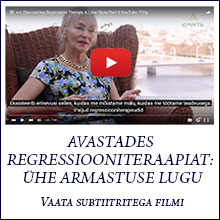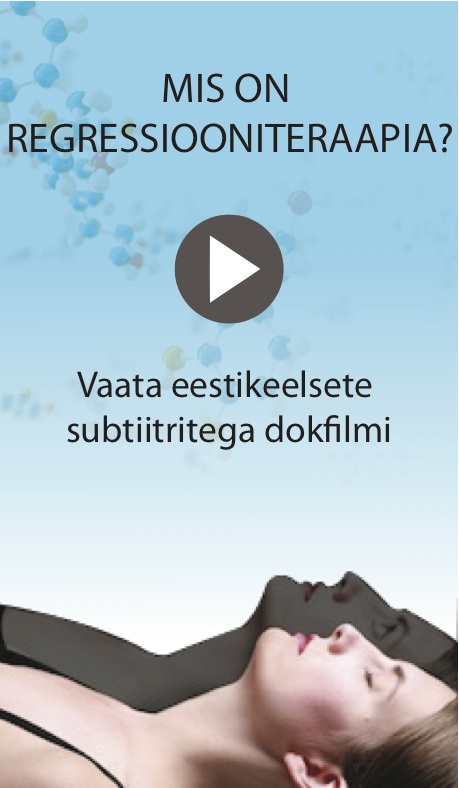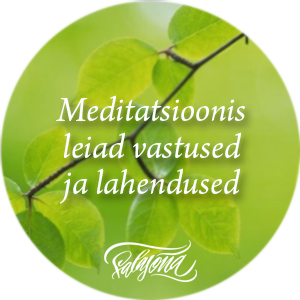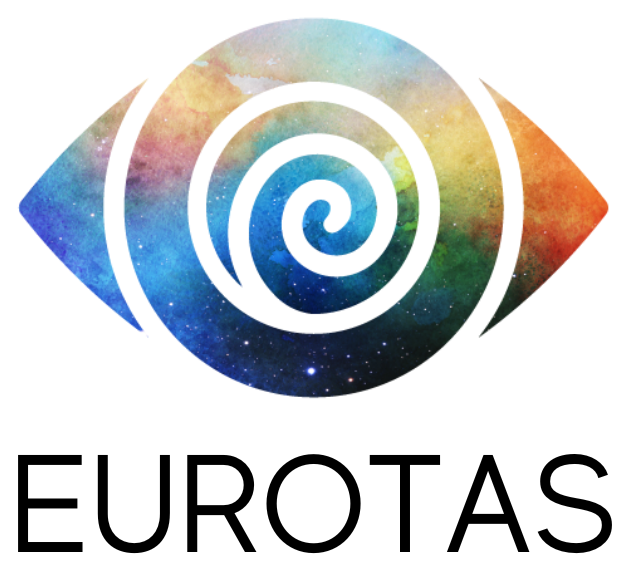Kadi Kütt
Our society has a cult of being strong. People tend to deny or suppress their pain and suffering because facing them hurts and endangers self-image. Although coping is beyond our means, we are not asking for help, we are closing ourselves in and still trying to push ahead. We only go to a doctor or a psychologist when we can no longer stand up and cannot cope with everyday tasks. And eventually, instead of the much talked about and desired happy flow and easy and free self-existence, the days are accompanied by restlessness, anxiety and constant struggle.
Anxiety triggers.
In my previous writings, I have emphasised that most anxiety starts because of the painful and unresolved situations of childhood. There is no one around the child who would embrace, explain, comfort, blow on the injured knee and inspire hope. Or the other extreme: the parent ties the child to themselves and in fear of losing pulls the cord tight. In both cases, the child’s basic needs are not met, emotional development is inhibited, and self-boundaries are clearly undeveloped. What does a child do in this kind of a situation? Swallows up confusion, frustration and pain and decides to be better and push on. But the pain does not go away; it becomes lasting suffering as a result of repression, which eats and irritates the soul. “We stop halfway, in a painful feeling that does not hurt too much, but will accompany us all our lives,” Tiiu Bolzmann, an Estonian family therapist working in Argentina, aptly describes this situation (‘Hidden Laws of the Family’). Because self-denial is associated with constant fatigue, lack of energy, frustration and guilt, self-esteem also suffers and this is a very fertile ground for anxiety.
All right, as a child, we didn’t get what we needed, but why is anxiety an issue today? Years have passed, the difficult situations of that time have been left behind! However, in our daily lives there are several ‘triggers’, as they are called in therapy, or stressful situations, that seem to open the gates to the subconscious and unleash the pain that has been hidden there for years or even decades.
The most apparent ‘trigger’ is, of course, mentally difficult situations, whether it is due to severe illness, the death of a loved one, divorce, experiencing violence, loss of health or a major financial setback. However, seemingly ordinary life events such as going to school or university, changing schools or jobs, becoming unemployed, getting married, having a child and moving to another city or country can also open the gates to the pain of the past. We have all experienced one or the other in our lifetime – why should such everyday things cause us anxiety?
If a child is closed and modest by nature, going from a small familiar rural school to a large city school is a huge change. The environment is unfamiliar; they have to get used to new teachers and classmates. Old friends, or the young person’s main support network, are left behind in their home village.
Changing jobs requires courage and self-determination from anyone; we need to prove to ourselves and others that we can do it. Not to mention, of course, becoming unemployed, which is a severe blow to the self-image and self-belief.
Although getting married is usually a very fun initiative, it can lead to a decent dose of stress. Marriage is much more than just a signature on paper. Deep down, everyone knows that marriage is a decision that brings with it much greater responsibility than before and requires commitment and a willingness to compromise.
During therapy sessions, I often hear distress from young mothers at home with young children: “I have completely lost myself. I want my life back!” Feeling as if personal independence has been completely handed over often leads to despair and depression. Caring for a baby is both physically and emotionally exhausting; the mother is suffering from constant sleep deprivation and fatigue. British psychologist and investigative journalist Oliver James (‘Not in Your Genes: The Real Reasons Children Are Like Their Parents’) explains it in such extreme terms: “For most mothers, the infant’s round-the-clock demands are so burdensome that sometimes one might get the idea that “one of us has to die, it can’t go on like this!”
Anxiety can also be triggered by hormonal changes in the body during adolescence and perimenopause. Serious illness, fasting, letting a foreign substance into the body, giving up smoking, drugs, or strong medicine can also be quite serious challenges for the body.
Statistics show that anxiety disorders are up to three times more common among those who have problems with alcoholism. Its users see cannabis as a sedative and anxiety-reducing drug. Still, its regular and heavy use leads to an overreaction of nerve receptors and triggers the opposite reaction to sedation: anxiety increases and can lead to acute panic attacks; not to mention stronger stuff like morphine, heroin and cocaine.
It is difficult to understand why or how exactly today’s stressful situations ‘awaken’ the old pain hidden in the subconscious. Finnish psychotherapist Olavi Noronen (‘Free from tension’, in Finnish ‘Jännittäjän kirja’) suggests that intense stress “tears down” the energy protection wall that surrounds experiences that are excluded to the subconscious and, thus, the emotions associated with these experiences rise strongly into consciousness under the influence of stress.
But, as the name suggests, it’s just a trigger. Concerns about illness, unemployment, divorce, or even alcohol abuse are, in the context of anxiety, only a surface under which unmet needs, chronic self-denial and deeply suppressed and carefully hidden emotions are waiting to be identified and investigated.
Escapism and avoidance do not help.
Anxious people know that physical symptoms such as palpitations, trembling hands, dizziness and difficulty breathing are just an expression of fear. However, when anxiety is already present, they still imagine how the symptom has a fatal effect. Because such an idea is very frightening, an anxious person does whatever it takes to escape feeling unwell.
How do we escape? There are thousands of ways! The most common, of course, is to avoid such situations altogether – not to use lifts and airplanes; postpone indefinitely the defending of a master’s thesis so that you wouldn’t have to open your mouth in front of the committee; send your spouse to the grocery store instead; ‘get sick’ when you have to report to others at an important work meeting, etc. It is also possible to escape without leaving the room; you can stare out of the window or keep to the wall and not participate in conversations.
But much more hidden ways to escape are binge training, long work days, surfing on social media, late-night ice cream portions in front of the TV, smoking, alcohol or drug use, endless busywork, chitchat, joking and so on. All these activities give a person a deceptive feeling that they do not have to do what scares them; perhaps this time, it will still be possible to get off easily.
Stop and acknowledge the reality.
An anxious person is always tense; they control their position, movements and words, careful not to reveal their secret. At a deeper level, such a hide-and-seek game evokes guilt and frustration in themselves: “I should be able to cope, not get anxious. I shouldn’t be such a loser!” These kinds of thoughts that constantly consume the mind of an anxious person lead to an internal struggle that, of course, further increases anxiety. People make themselves their own enemy.
So we run around and are busy, we are hardworking and efficient, but the body does not withstand such tension and sooner or later signals a crisis with some symptoms.
Until you admit to yourself that you are having a hard time, that you are hurt, or in trouble, you cannot help yourself. “This is how it is now. I don’t feel well. I’m offended, disappointed, angry, sad… I haven’t been able to live so that I could be happy… I cannot handle it. I feel anxious.” If you deny your human weakness and continue to try to be (outwardly) strong, if you fight a hurtful situation or an emotion rising to the surface, you dig yourself into an even deeper hole.
“What you are fighting against will last”, says a Chinese proverb.
Making peace in yourself.
Edmund J. Bourne, a psychologist who has been working on anxiety disorders for more than twenty years (‘Anxiety and phobia workbook’), recommends: “Accept what your body does – don’t fight it. When you try to resist panic, you simply cause yourself more tension, which only increases your anxiety. If you adopt the exact opposite attitude, take the situation easy and allow your body to react accordingly (e.g. palpitations, tightness in the chest, sweaty palms, dizziness, etc.), it will help you to survive the panic much faster and with easier effort.”
Making peace with it does not mean that you accept your anxiety as an inevitability and do nothing. You come to terms with reality within yourself: “This is how it is now.” You make peace with it, and then take action: ask your doctor to do a medical examination, make an appointment with a psychologist or therapist, carry out an inventory in your daily life. This way, there is an entirely different energy in your steps than when you are fighting and cursing yourself and your destiny. You ask yourself: “Where does my anxiety come from? What do I feed my anxiety daily? What can I do to improve my physical and mental well-being? What is stopping me? From whom and what kind of help do I need?” And then you take action.
Seek support from someone you trust.
Clients say they have only dared to talk to their psychologist or psychiatrist about their anxiety. Even spouses do not know, let alone colleagues and friends. They don’t tell them because they are afraid that they will not be understood, that they are considered weak or strange, that they will no longer be included. In our success-oriented society, imperfection is very difficult to accept. You have to be strong and do everything!
Choose someone who you feel is safe and reliable to talk about your anxiety: a psychologist, a therapist, a partner, a best friend. If you dare, tell your boss and a few reliable colleagues at work about your problem. It makes the workplace a safer place for you. If even a few people are aware of your problem, you’ll be less worried about what people might think if you have an anxiety attack. And if you feel terrible, you can leave work temporarily instead of being trapped between four walls.
Of course, talking means taking risks. There is always a possibility that someone who points fingers or labels shows up. That is why it is wise to start opening yourself in a supportive environment. My clients have experienced that people mostly stay friendly. Most people understand well because they suffer from the same problem and know what anxiety means.
Look at yourself with “good eyes”.
Healing can only begin when we acknowledge that, despite our efforts, we are still imperfect and weak. Not all work goes well, not all relationships end well, it is not always possible to be liked and sometimes the soul wanders in the darkest of nights. Instead of constantly expecting yourself to do well and raising your personal bar higher, it is sometimes very healing to look at your darker side and accept it, saying “yes” while looking in the mirror, instead of denying yourself. “Look at yourself with good eyes”, says Tiiu Bolzmann, very kindly.
Accepting yourself allows you to exhale deeply and relax. Only now can the healing of the body begin, because the tense and constantly struggling body simply does not have the resources to heal. Fighting, hiding, being on guard and defending uses a lot of energy.
When the mind stops escaping and fighting anxiety, the body can adopt its own natural healing mechanisms. In addition, you can use the released energy much more wisely: examine yourself and especially your hidden Self, stand up for your needs and allow yourself to flow easily and freely.
It is the seventh article from a series called “Anxiety from several angles” published in an online magazine EDASI.org . The article was published on May 12, 2019.













0 Comments